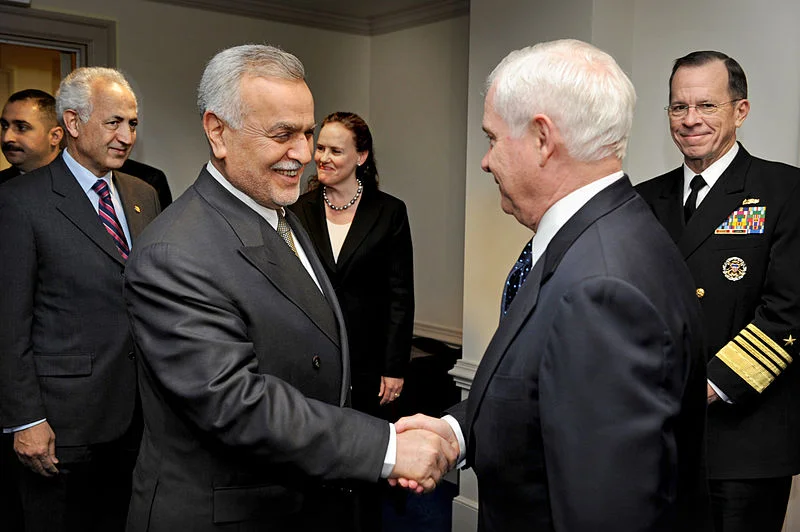Al-Hashimi Shows Cracks in U.S. Iraq Plan
 Vice presidents from robust democracies don't normally get involved with religiously-motivated gangs.
Vice presidents from robust democracies don't normally get involved with religiously-motivated gangs.
Yes, it is an absolutely terrible and absurd scenario. But this week one of Iraq's two vice presidents, Tariq al-Hashimi, was sentenced to death in absentia for his role in organizing death squads that targeted the country's majority Shia Muslim population. Al-Hashemi fled the country weeks ago and has since taken refuge in Turkey. Addressing the Iraqi people recently from a press-conference conducted in Turkey, al-Hashemi called the sentence "unjust" and called himself a symbol for the politically oppressed everywhere. Al-Hashemi has the opportunity to appeal the verdict but says that he will not return to Iraq unless he feels confident that he will receive a fair trial. Al-Hashemi may want to consider studying for the Turkish citizenship exam.
Al-Hashimi's guilty verdict comes at a time of extreme upheaval in Iraq. Since the U.S. military has largely vacated Iraq, coverage of the country has largely vacated the American airwaves. But since when has that ever meant anything? On the day Al-Hashimi was sentenced to die by hanging, a perfect storm of car bombings and insurgence attacks killed almost 100 Iraqis. A few days before nearly fifty Iraqis were killed in a spate of bombings. In late July, 107 Iraqis were killed in one day. Overall, it's been a bloody summer.
Despite the recent violence, the idea that we're done with Iraq has become a fairly salient one in America, I think. Out of sight. Out of mind.
But the fact of the matter is America screwed up. In our country, yes, we have some slippery politicians — some lobbyist-comped trips to a golf resort, a few questionable friends. But in comparison to the state that we created in Iraq, U.S. "corruption" is child's play. It is inconceivable that an American vice president would order attacks on his own people, particularly by virtue of their faith. What this verdict shows is, regardless of its veracity, the American gamble in state creation has largely failed.
We constructed a state that exacerbates sectarian tensions. The composition of the Iraqi "Presidency Council" is particularly telling. The Council is composed of a president and two vice presidents. Each post must be filled by a member of one of Iraq's three dominant groups -- the Shias, the Sunnis, and the (predominantly Sunni) Kurds. This politician affirmative action policy is seen across Iraq and serves as a constant reminder to the people of what divides them. How will the people ever see themselves as Iraqis when sectarianism has literally been woven into the fabric of their new "democratic" political system?
Al-Hashimi's trial, then, ought to start a discourse on the entire Iraqi political system. Of course, the Kurds and the Sunnis feel jointly oppressed by the Shia majority, particularly given the Sunni's several decades on top under Sadaam Hussein. Kurdish and Sunni politicians quickly rallied behind Al-Hashimi. This is disturbing. Political leaders cannot unite by virtue of their faiths, when those very faiths are tearing Iraq apart and killing hundreds.
The U.S. and friends ought to take a long, hard look at their state-creation manuals. Soon, Syria will probably be in need of a transition government. Giving into short-sighted popular demand for perhaps joint Sunni, Shia, and Alawite rule would be a grave miscalculation and reflect a mistake from which not enough was learned.

